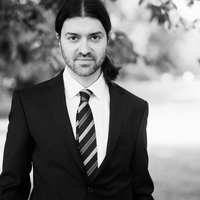
Edward Butler on Proclus, Part I: ‘Henadology’
We discuss the One and the Henads in Proclus with Edward Butler. Henology meets henadology on a metaphysical terrain where gods are the primary unities.

We discuss the One and the Henads in Proclus with Edward Butler. Henology meets henadology on a metaphysical terrain where gods are the primary unities.

We are delighted to welcome Prof Stróżyński back to the podcast to deepen our understanding of Augustine's engagement with Platonist philosophy. The saint emerges as, in some ways, a model Plotinian thinker, in other ways something totally different from that, and, above all, as a philosophic thinker struggling with the reality of daily life in the collapsing western Roman empire.

We discuss the Latin translation and commentary of Calcidius with Gretchen Reydams-Schils. Who was Calcidius, where did he get his interpretations of what Plato meant, and, best of all, how did his anti-esotericist approach to Plato feed into western Christian esotericisms? We find out.

We explore the Theolegoumena arithmeticæ, the ‘Theology of Arithmetic’, our most complete extant arithmological treatise from antiquity. It tells us a lot about Neopythagorean theory of number in the Greek ‘alphanumeric age’, it may be by Iamblichus, and it informs us that the Dyad is ‘Daring’.

We discuss the rich strata of the esoteric in the work of the sage of Chalcis. Starting from the evidence for socially-esoteric teaching within Iamblichus' school, we move on to discuss his constructions of esoteric wisdom lineages – notably the tradition of ‘the theurgists’ – his employment of tropes of hiding and revealing, and the parameters of the Iamblichean ‘ineffable’.

We speak with Marilynn Lawrence, authority on Platonism, Hellenistic astrology, and the intersection of the two, about Plotinus' theoretical writings on the science of the stars.

We continue reading, with C.H. VI-X posing all manner of baffling interpretive questions, as well as some of the most inspiring and gorgeous religious ideas from antiquity. Come for god as the hyperessential good, stay for the noetic garments of fire.

Building on our previous episode, where we introduced 'Middle Platonism', in this interview we investigate the middle Platonist 'Underworld', religio-philosophical texts of antiquity which became mainstays of later western esoteric traditions: the Chaldæan Oracles, the Hermetica, and the Gnostic tractates.

Under the expert guidance of Professor John Dillon, we begin our exploration of what may be antiquity’s single most crucial current for the development of western esotericism: Middle Platonism.

In this episode we explore the deeply esoteric thought of Philo of Alexandria. Expect hidden ancient perennial traditions, divine revelation, esoteric philosophic truths hidden in plain sight, arithmological speculations, and much more.

The first true western esotericist: Philo of Alexandria. In this episode we come to grips with what makes him so western, what makes him so esoteric, and introduce his fascinating life and work.

After the final Pythagorean died, all was quiet. And then, suddenly, people started going around calling themselves Pythagoreans. Growing long beards. Hailing Pythagoras as an ancient magus-sage. Positing a monad as the ultimate source of reality. Welcome to Neopythagoreanism.

Professor Adamson enters the speculative realm at the edges of Platonic interpretation, addressing issues ranging from the rise of the ineffable in late antique Platonism to the status of the giraffe in Plato's thought.

We discuss Plato with Peter Adamson, Professor of Philosophy at the LMU in Munich and presenter of the History of Philosophy Podcast, asking the question: how can the Plato of analytic philosophy be the same man as the esoteric Plato?

In the Cratylus Socrates and friends discuss the nature of linguistic meaning, and explore the process of ‘esoteric etymology’, by which the secrets hidden within names reveal the true nature of the names' referents. Come for the earliest discussion of linguistic theory, semiotics, and logic in the western canon, stay for the esoteric etymologies and the language spoken by the gods themselves.

Plato was long considered an esoteric author who hid his true doctrines within his dialogues. We look at some of the reasons for his reputation as the esoteric author par excellence, and discuss modern academic debates around the ‘esoteric question’.

Professor Wouter J. Hanegraaff, head of the Centre for the History of Hermetic Philosophy and Related Currents at the University of Amsterdam, on researching western esotericism, the history of the field, and ‘rejecting the rejection of rejected knowledge’.

A lightning summary of key major elements of western esotericism from late antiquity up to the middle ages, featuring a foray into the esoteric art of imaginal cocktail-mixing.